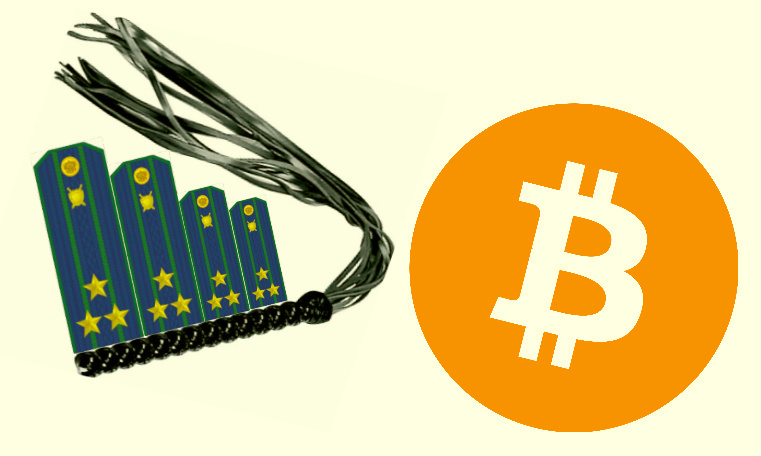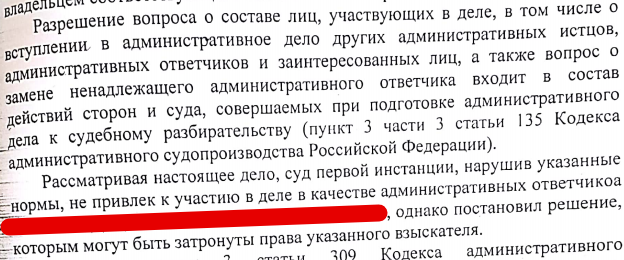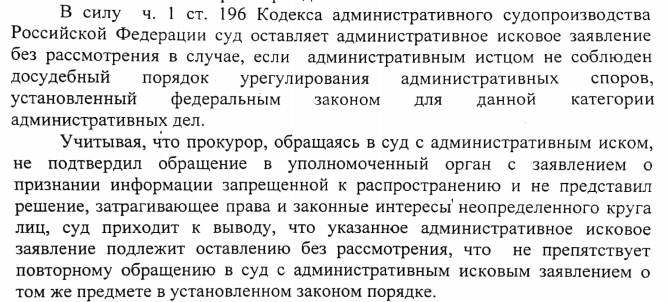The prosecutor’s car locks. Bestchange is locked again

This week our old client bestchange.ru wrote to us . If anyone does not know, bestchange is the largest online electronic currency exchange monitoring service that has been operating since 2007 and collects information from more than 400 active exchangers. The administration of the service said that they received a letter from the host, who received a notification from Roskomnadzor about the inclusion of the site in the Unified Register, and therefore the site will be blocked.
At first, we thought it was some kind of mistake, because a year ago we had already canceled the court decision on their site. What was our surprise when we found out that this time the site was blocked on the basis of another decisionships, like two drops of water similar to the previously canceled Petersburg decision. We fiddled around a bit and found this decision made by the Kuybyshevsky District Court of Omsk four months later. The same site, all the same sucked from the prosecutor’s finger base.
Let me remind you that in May 2017, the October court of St. Petersburg decided to block the Bestchange service and 39 other online exchangers in a lawsuit by the city prosecutor’s office, guided by similar arguments, saying that bitcoin is a money substitute, and the dissemination of information about money substitutes is prohibited by law. In addition, according to the prosecutor's office, the irreversibility of transactions in the blockchain does not provide the possibility of implementing legal mechanisms to ensure the fulfillment of obligations by the parties to the transaction.
After the appeal of the judicial act in February 2018, the city court of St. Petersburg quashed the decision as unlawful and unjust, due to the fact that the site owners were not involved in the process, which violated their right to state their arguments in a fair trial.

Already at a new round of the case, after the annulment of the judicial act by appeal, the court did not consider the claim of the prosecutor on the merits, and found reasonably well-founded grounds in the CAS of the Russian Federation to “wrap up” the lawsuit. Like, the pre-trial procedure was not followed.

After that, the St. Petersburg prosecutor's office for the supervision of the enforcement of laws at especially sensitive facilities (apparently the Internet is now a particularly sensitive facility, which in principle explains the current trend to regulate everything that can be regulated on the network) decided not to continue to rock the boat and did not file a second lawsuit. And besides, by this time the Supreme Court had formulated its position on another bitcoininfo.ru cryptocurrency website.
On April 20, 2018, the Supreme Court, repealing the judicial acts of the first and second instances, made a number of important conclusions that must be taken into account by the lower courts:
- claims of prosecutors to declare information illegal with the aim of blocking should be considered in the procedure of CAS of the Russian Federation
- such claims cannot be considered in the courts at the location of the prosecutors. They should be considered at the location of Roskomnadzor or its territorial body (which is also quite controversial, because the territorial departments do not have access to the registry, and they cannot deposit or withdraw anything from there independently)
- site owners and content authors should be involved in the case, as such court decisions are not only able to limit their rights, but also create an obligation for them to remove content
As you can see, the cassation instance has escaped the slippery issue of determining the legal status of cryptocurrencies, however, the value of this Definition is difficult to overestimate, since the Supreme Court for the first time determined at least some sane rules on the procedure for considering such claims entailing blocking of web resources in the country. Subsequently, this position was also reflected in the Review of judicial practice of the Supreme Court of the Russian Federation on Administrative Cases N 2 (2018) "(approved by the Presidium of the Supreme Court of the Russian Federation on 04.07.2018).
When considering the case in a new circle, the prosecutor refused the lawsuit, citing the fact that in recent years the current legislation has changed, the provisions of which are aimed at the legalization of cryptocurrencies, including bitcoin (which, of course, at that time was not true, because the bills only they were only submitted but not accepted)

However, even a rejection of the lawsuit did not allow St. Petersburg prosecutors to evade responsibility. For filing an unreasonable claim, the court sought 150,000 rubles from the St. Petersburg city prosecutor’s office in favor of the site owner, which was a rather unprecedented event in domestic jurisprudence. Prosecutors are currently trying to appeal this determination.
It should be noted that on March 12, 2019, the State Duma at the plenary meeting nevertheless adopted in the third, final reading the amendments to the Civil Code of the Russian Federation on “digital rights” , which suggests that cryptocurrencies were nevertheless given the “green light”. These amendments provide the basis for regulating relations within the digital economy in the Russian Federation. Currently, two more bills are under development: on Digital Financial Assets (which include cryptocurrencies, including Bitcoin) and on crowdfunding, but a start has been made to legalize cryptocurrencies.
We have repeatedly drawn attention to the fact that there is no connection between the prosecution authorities of different entities. They work in a vacuum, torn from each other. On the same site, on the same grounds, 2 or 3 court decisions can be made in different entities. And if all of them have entered into force, you will have to cancel each of them, because the ILV argues that it does not decide anything on its own and is obliged to comply with the judicial acts.
The saddest thing about this is that it’s not even that the courts and prosecutors do not interact with each other, taking away from themselves invaluable time that could be spent on something more serious and important, but that the courts and prosecutors have extremely low legal qualifications, absolutely do not follow the changes in judicial practice, including the position of the Supreme Court on issues of judicial interpretation of laws.
We have no doubt that we will cancel the unjust judicial act and again punish the stupid prosecutor with the ruble. It's a question of time. But still we have to live in this madness, and Internet businesses in Russia literally survive under the enthusiastic calls of the country's leadership to build a bright digital economy.
Only registered users can participate in the survey. Please come in.
Are prosecutors and courts ready for the digital economy?
- 59.6% Not ready due to lack of proper legal and technical qualifications 148
- 37.5% Not ready due to lack of independence of the judiciary and supervisory authorities 93
- 2.8% In general, they are ready, but there are small roughnesses that will be eliminated over time 7
